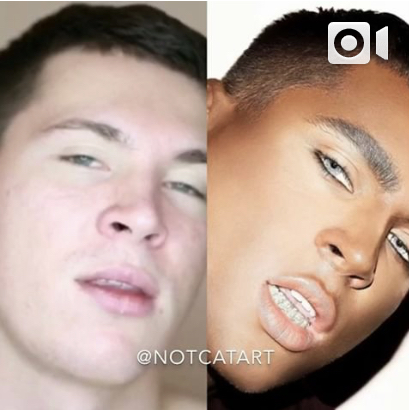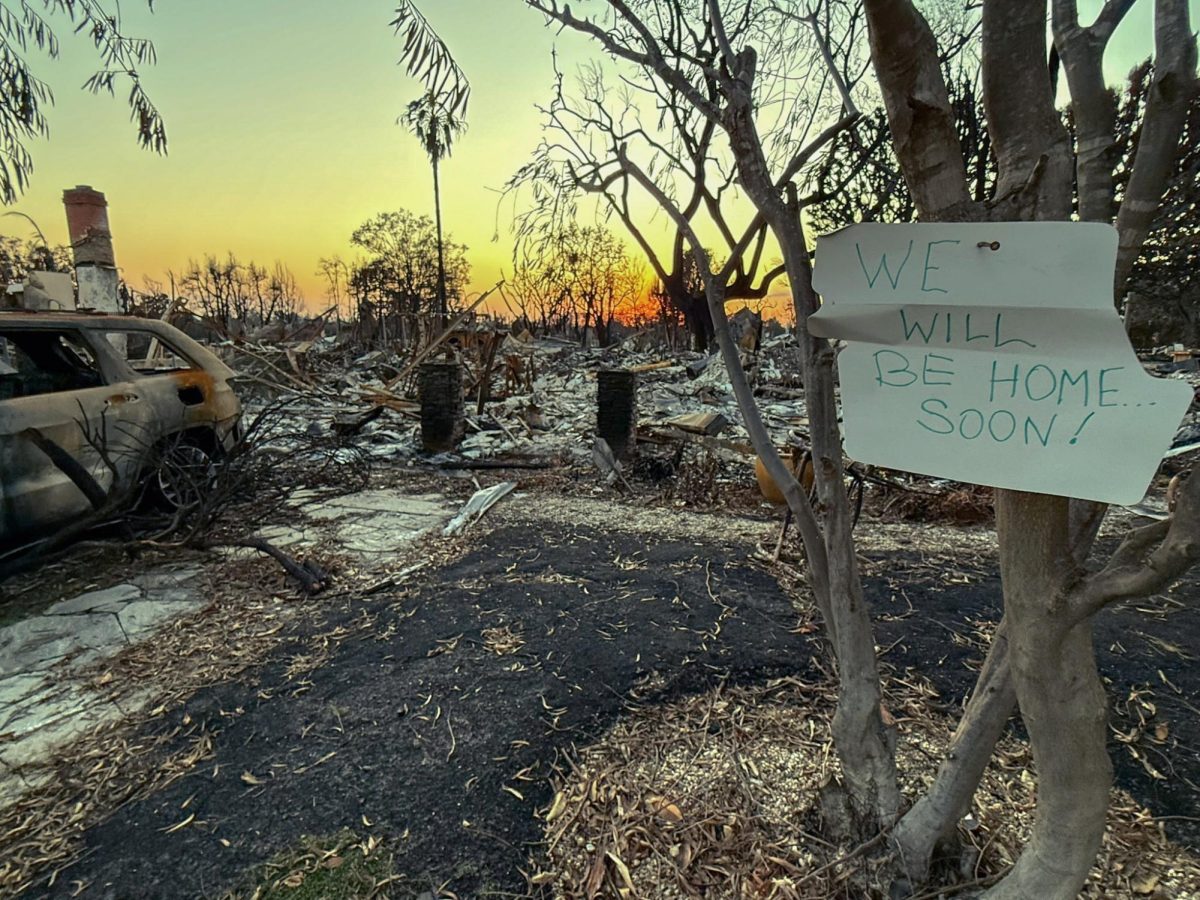blackface makes me sad.

February 27, 2019
Riding through the Village in my friend’s car, on the way to get my much-anticipated quesadilla from Garden Cafe, my heart shattered as the white man in the white Prius said to me with words whose sounds were blocked by window glass, “You dirty n*gg*r.” I was shocked, flabbergasted and didn’t know how to respond, so I didn’t. We waited minutes until we deemed it safe to leave the car. The Prius had driven away, yet, as I stood in Garden, I still feared for my life.
I cannot believe that people still have a mindset like this. It would be wrong of me to assume the political standpoint of the assailant, but what can be said is this: Anyone who still sees the need to use words like that needs some sort of help.
I thought America was past the point of blatant racism and discrimination, but I was clearly wrong. The following night, on my Instagram Explore Feed, I came across posts showing makeup artists who paint themselves with darker foundation to portray a person of color. These artists labeled it as trying to show the beauty of diversity. Why not call it what it is: blackface?
In case you aren’t aware, blackface was introduced in the late 19th century to allow white actors to play characters of color in a mocking way. Blackface has never had any kind of positive connotation, yet some of today’s makeup artists view it differently.
Minstrel shows, which lasted up until the 1970s, showcased white actors with black paint smeared across their faces to illustrate the image of the black man. They depicted us as ragged, illiterate and incompetent — unable to blend into the surrounding white culture. Many of these performers were revered and helped manufacture a false image of African Americans, one which fostered the negative stereotypes that continue to plague us today.
My discovery of that single Instagram post has led to a multitude of blackface posts popping up throughout my Explore page, which simply leads me to ask: why?
Why would anyone think that blackface is justified simply because they slap the word “diversity” somewhere in the caption? Why would Instagram allow posts like the one I saw to not only exist on their platform, but also to advertise them to users on Explore pages?
Initially, the first time I saw blackface on Instagram was from a Russian makeup artist, Sergey Lyubimov (@notcatart on instagram). With a smile, he spread foundation about 50 shades too dark across his face, tinted his lips darker and placed a grill in his mouth, all in the name of promoting diversity. Yet, he is doing the exact opposite. Even people in the Instagram comments were calling out the video for blatant blackface and racism; to most, it is disconcerting that he could be so oblivious to the offensive act of painting himself black.
After I spent an obscene amount of time watching that video trying to make sense of everything, Instagram decided to push a similar post out to me on my Explore feed. This one, however, was from an unidentified makeup artist who really went above and beyond in portraying herself as black.

This woman, fair-skinned with straight black hair, completely transformed herself into the caricature of a black woman. Not only did she paint her face in a darker foundation, but she also went as far as to stuff cotton in her mouth to fill out her cheeks and lips and throw on a curly wig as well. This imitation of the black aesthetic has become more of a trend as the years go by, especially with the idea of “blackfishing” becoming more prevalent.
Blackfishing refers to people who darken their skin and wear commonly-black hairstyles, such as box braids or cornrows, in an attempt to fool their social media followers into thinking they are a different race. In recent headlines, Ariana Grande, Kim Kardashian and a handful of lesser-known Instagram models have been accused of appropriating black culture.
Because of acts such as blackfishing or blackface, colored girls and boys are now seeing in the media that the color of their skin, which they cannot change, has been used as a marker of beauty and appeal. These kids have been told and taught that the darker their skin is, the less attractive they are in the eyes of society — that their natural hairstyles do not conform to Western standards of beauty, and that their very bodies are ugly to the rest of the world. Growing up, people of color have seen actors and actresses of lighter melanin celebrated on TV and showcased as more attractive on social media. This alone is damaging enough to a young girl’s self esteem.
After seeing all these instances of blackface or blackfishing on social media platforms that don’t do anything to remove these posts, but rather promote them to anyone who wishes to click on their profiles, I wonder: Have these creators even considered the irreversible and harmful effect that this may have on children of color, especially girls?
People whom the media promotes as standards of beauty — such as Ariana Grande, Kim Kardashian and other Instagram models with hundreds of thousands of followers — use cosmetic treatments to darken their skin and give themselves fuller bottoms and lips.
The sad notion is clear: Black is only beautiful when you can control it.











